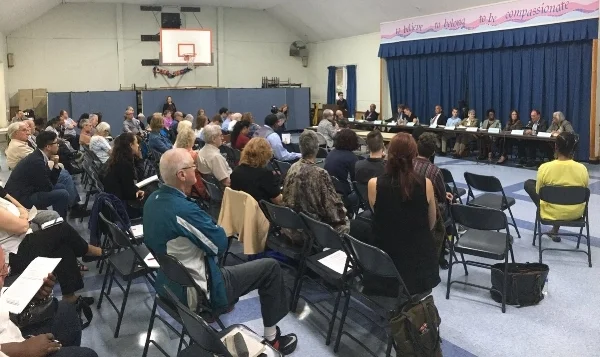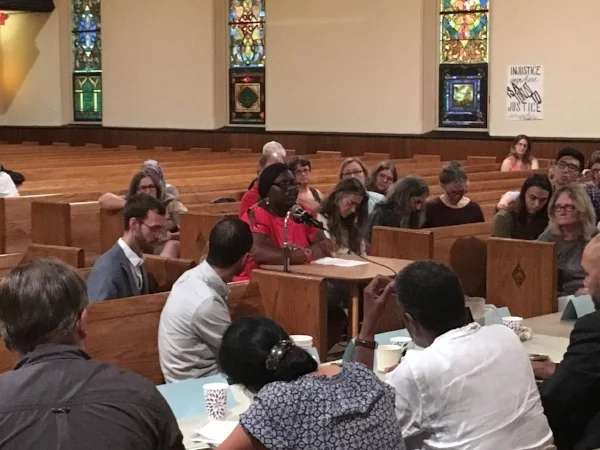Forward
The Poverty Truth Commissions organized by the New York State Labor-Religion Coalition from June to September, 2017 are part of a broader effort to change the national conversation around poverty. In a time when one in two Americans are poor or low income, when more than 40 percent of our children are hungry, when 64 million workers are earning less than $15 an hour, and when the net worth of the wealthiest 20 billionaires is more than half of the U.S. population, we are far past due for this conversation.
For this reason, in January 2017, The Kairos Center for Religions, Rights and Social Justice convened a National Truth Commission on the Right to Not be Poor. The National Truth Commission gathered 20 leaders to serve as commissioners, coming from grassroots and community struggles in 14 states around water, housing, sanitation, work, livelihood, health care, mass incarceration, war and militarism, and immigration, and a global network of organizations fighting for economic human rights. They came together in numerous delegations to participate in a series of meetings, organizing tours, public events and gatherings in rural Washington State, Detroit (MI), Baltimore (MD), Chicago (IL), Pittsburgh (PA) and New York State. Their charge was to listen, learn, and begin to build new relationships that could break through the ideological and political narratives that keep us quiet and isolated about poverty, racism, militarism and ecological devastation. Indeed, the Right to Not be Poor is a demand emerging out of these struggles for dignity, equality and peace. It begins to suggest a world where the meeting of our basic needs is guaranteed and non-negotiable.
The Poor People’s Campaign: A National Call for Moral Revival is leading this effort around changing these narratives and offering a new vision for the direction of our society. Co-chaired by Rev. Dr. William Barber and Rev. Dr. Liz Theoharis, the Poor People’s Campaign is challenging the ideas that we should accept poverty in the midst of plenty or that the poor are responsible for the social ills of poverty, racism, militarism, ecological devastation. These “four evils” of our current context build upon “the triplet evils” of the 1968 Poor People’s Campaign, launched by Rev. Dr. Martin Luther King, Jr., and dozens of poor minority leaders who began to appreciate the power in uniting those who society said were powerless. By coming together in May 1968 from across the nation to set up Resurrection City in Washington, D.C., and to have access to food, clothing, medical care in abundance and for free, they began to redefine what life in this country should be about.
Similarly, today’s Poor People’s Campaign is asserting that what we are experiencing are the structural sins of our country’s misguided economic, political and social leadership. It is an appeal to our deepest sense of morality that is grounded in multiple faith traditions and a profound understanding of the indivisibility and universality of our God-given human rights. This Campaign is announcing loudly that there is good news on its way for the poor and dispossessed of this nation. And it is organizing towards a period of sustained and coordinated actions, civil disobedience, cultural expression and education in 25 states and Washington D.C. in 2018.
The Poverty Truth Commissions are an indispensable element of this effort. These events brought together veterans, mothers, fathers, social service providers, LGBTQI community members, and many more to testify to their own struggles with housing, social services, low-wage jobs, and our public institutions. Their testimonies confronted deeply embedded stereotypes of the poor. It gave space to the courageous people who are standing up across New York State and the rest of the country, saying, this is enough. We do not deserve this. We, the least of these, are most of us. We are all God’s children and we demand more.
From now on, we will fight poverty, not the poor.
Shailly Gupta Barnes, Kairos Center for Religions, Rights, and Social Justice


